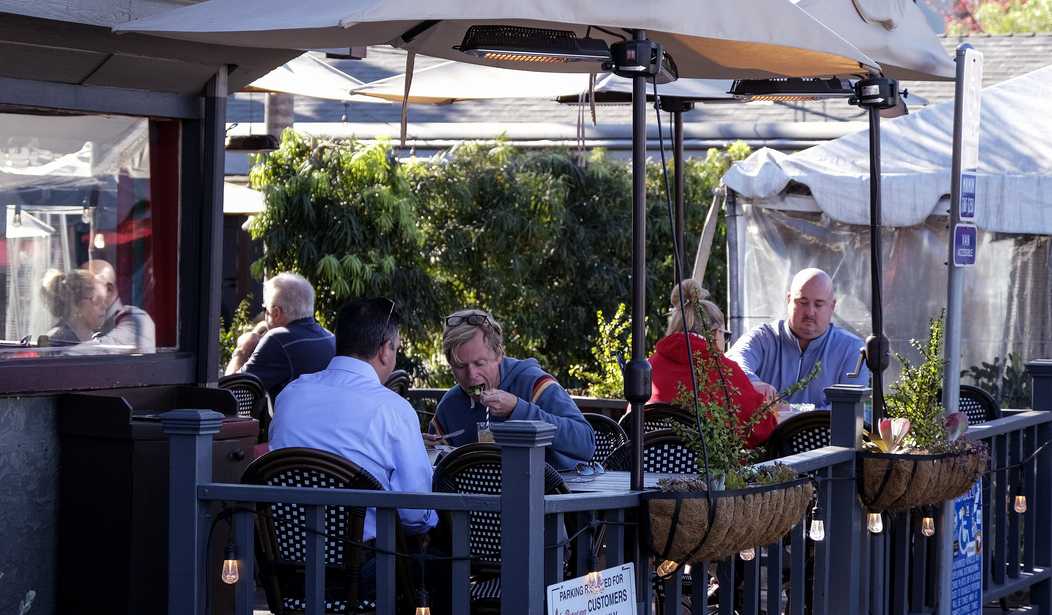We've had an ongoing public argument over whether or not people are unhappy about the economy because things are actually bad or if it's merely some sort of vibecession. The vibecession people generally argue that Bidenomics has been great but that people don't admit it because they are being fooled by misleading media reports (usually attributed to conservative media outlets).
Last week the LA Times took an in depth look at the restaurant industry in California and found that things are not going well. Last year was an especially bad year with lots of restaurants closing for good but this year could be even worse.
Interviews with more than two dozen chefs, restaurateurs, policymakers and advocacy groups revealed pointed concern over the state of the service industry, and questions of longevity — especially in light of 2023, a particularly difficult year for restaurants in Los Angeles...
“Costs are higher than ever, risks are higher than ever,” said Lauren Lemos. “I always want to have some kind of optimistic outcome for the future, but I do really worry, ‘Is it going to be sustainable?’ I’m not sure we’ll have mom-and-pop restaurants for a long time more.”
The Times does eventually get around to mentioning that an increased minimum wage in California and other states is a major factor in why so many restaurants are struggling.
Federal minimum wage remains at $7.25 per hour, as it has for years, but in 2024, 25 states either saw their minimum wage increase or expect to increase it by the end of the year. This includes California, which in January bumped its hourly minimum wage from $15.50 to $16. It falls just behind Washington, D.C., and Washington state, at $17 and $16.28, respectively, as the highest statewide minimum wage in the country.
A co-president of a union representing more than 30,000 restaurant workers thinks the wage increases are great. And besides, places where wages go up are doing well, she claims.
According to [Ada] Briceño, higher wages don’t necessarily equate to a halt in business; where she said they have seen a crush of new-business permits is in the city of West Hollywood, which two years ago voted to raise its minimum wage, now at $19.08 per hour — the fourth-highest in the country.
“We see that in areas where we have the highest wage increase — for example, West Hollywood — have a boom in business,” she said. “I think that’s really important.”
But multiple West Hollywood restaurateurs said the minimum-wage increase and paid-time-off requirements forced them to limit hours, raise prices or cut staff entirely. Industry veteran Craig Susser operates celebrity hot spot Craig’s in West Hollywood. He recently told The Times that in order to financially offset the increase in minimum wage, he had to reduce the number of servers from 12 to nine, and sometimes to eight.
Of course it's not just higher wages that make for higher costs. Restaurants are paying more for ingredients and, for those who deliver, for gasoline to run delivery trucks. The price of gas is back up over $5 a gallon in California at the moment. Even the cost of kitchen repairs is said to be up sharply.
In short, there are many aspects of the business that are undergoing inflation and all of these costs are forcing restaurant owners to either close their doors or cut staff/raise prices to a level that may or may not be sustainable.
What you won't find in this article is anyone arguing that all of this is a figment of the restaurant owners' imagination. There is no mention of vibes or the vibecession. No one is shouting down the owners or insinuating they are too dumb to know that Bidenomics is good for them. Instead, the consensus is that the industry is genuinely struggling as a result of things that are really happening in the economy over the last couple of years.
If restaurants are struggling, why is it so hard to believe regular people are struggling with some of the same cost increases? After all, the rising costs of food and gasoline effect families just as much as restaurants. And those impacts may help explain another factor that is hurting restaurants right now. Many people are just choosing to stay home. Chef David LeFevre told the Times, "At the restaurants, the reservations after 8:30 [p.m.] are 50% of what we used to do, and that is a really big aspect of it."
We don't know exactly why business is off, but it's a safe bet that people feeling like they have tighter budgets of their own to worry about is part of it.








Join the conversation as a VIP Member